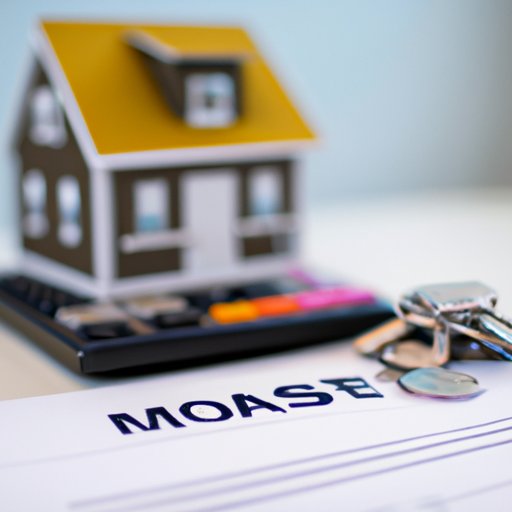Introduction
Buying a house is one of the biggest decisions you’ll ever make. It’s an exciting time, but it can also be overwhelming and stressful if you don’t know how to navigate the process. One of the most important steps in the home buying process is figuring out how much house payment you can afford. Knowing your budget and understanding the factors that go into calculating your maximum mortgage payment can help you make an informed decision about the best house for you.

Calculating Your Maximum Affordable Mortgage Payment
The first step in determining how much house payment you can afford is understanding your income and expenses. Start by looking at your monthly take-home pay after taxes, then subtract any recurring expenses such as student loans, car payments, credit card payments, and other debts. The amount left is your disposable income, which is what you have available to put towards your house payment.
Once you have calculated your disposable income, you can use online calculators or speak with a mortgage lender to determine your maximum monthly payment. Generally, lenders recommend that your total monthly housing costs (including mortgage principal, interest, taxes, and insurance) should not exceed 28 percent of your gross monthly income.
It’s also important to factor in the current interest rate when calculating your maximum mortgage payment. A higher interest rate will mean a higher monthly payment, so you may need to adjust your budget accordingly.

Estimating Your House Buying Budget Based on Your Income
Once you know your maximum monthly payment, you can start to estimate your house buying budget. Start by estimating your down payment. Generally, lenders require a 20 percent down payment, but there are programs available for first-time home buyers that may allow you to put down less. Then, calculate your closing costs, which generally range from 3 to 5 percent of the purchase price. Finally, add up your estimated monthly payments to get your total estimated budget.

Understanding How Much House You Can Afford
In addition to your mortgage payment, there are other costs associated with owning a home that you should consider when determining how much house payment you can afford. Property taxes and homeowner’s insurance will add to your monthly costs, as well as any homeowner association fees or special assessments that may apply in your area. Be sure to factor these costs into your budget when calculating your maximum mortgage payment.
Factors That Affect How Much Mortgage You Can Afford
Your credit score and debt-to-income ratio are two of the most important factors that lenders look at when determining how much mortgage you can afford. A good credit score (generally above 700) will give you access to more favorable loan terms, while a high debt-to-income ratio (over 43 percent) can limit your loan options. Additionally, the type of loan you choose will also affect your maximum house payment. Federal Housing Administration (FHA) loans and Veterans Affairs (VA) loans can offer lower interest rates and down payment requirements than conventional loans.
Tips for Sticking to Your House Affordability Budget
Once you’ve determined how much house payment you can afford, it’s important to stick to your budget. Make sure you have an emergency fund set aside in case of unexpected expenses. Consider a 15-year mortgage to pay off your loan faster and save money on interest. And finally, get pre-approved by a lender before you start shopping for a house so you know exactly what you can afford.
Conclusion
Buying a house is an exciting experience, but it’s important to understand how much house payment you can afford so you can make an informed decision. Calculate your maximum affordable mortgage payment by understanding your income and expenses, estimating your down payment and closing costs, and taking into account property taxes, insurance, and other costs. Be sure to factor in your credit score, debt-to-income ratio, and loan type when calculating your budget. With careful planning and preparation, you can find a house that fits your budget and lifestyle.
(Note: Is this article not meeting your expectations? Do you have knowledge or insights to share? Unlock new opportunities and expand your reach by joining our authors team. Click Registration to join us and share your expertise with our readers.)
